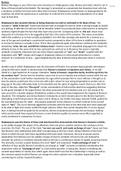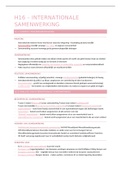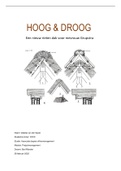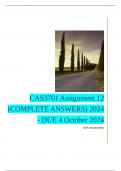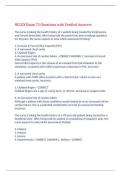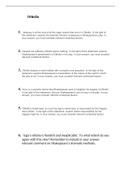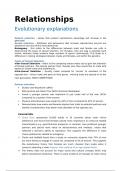Exam (elaborations)
grade 9 AQA English literature GCSE essays on Romeo and Juliet
- Course
- Institution
- Book
contains teacher-marked essays on: Romeo, Juliet, Fate, the Friar, love, conflict, religion, gender, death, Mercutio, and the nurse these are a mixture of past paper questions used in mock exams as well as predicted questions for upcoming GCSE exams
[Show more]
